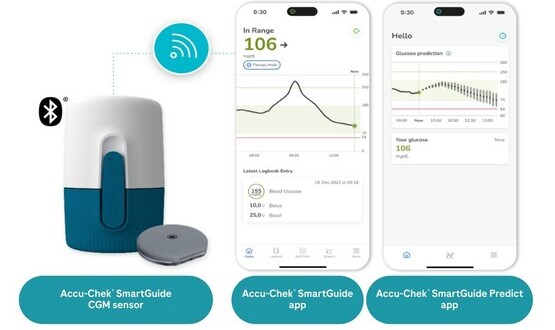Better information sharing will improve diabetes care
- 23 November 2023

Clinical decisions about people with diabetes are too often based on “guesswork”. Effective information sharing – aided by the PRSB’s Diabetes Record Information Standard – should make it easier to deliver joined-up care, says diabetologist Iain Cranston
Anyone using or working in diabetes services will know that providing seamless care is a challenge. Elements of diabetes care are often delivered in a piecemeal fashion, in different locations and via consultation with different specialist clinicians. Currently, there isn’t a ‘one-stop shop’ where people can be offered all the services they need to manage their condition (which for many people will impinge on care that is not related to diabetes). They may have their diagnostic and/or screening blood tests taken at their GP surgery and then be referred to a third-party provider for educational services, or to a specialty team within secondary or community care for additional advice.
There is a need to improve how we share information relevant to diabetes between different settings; we should not be asking people the same questions repeatedly. The diabetes care pathway should be as smooth and effective as possible – and we need to act on this now. Some 5.3 million people in the UK are expected to be living with diabetes by 2025.
Working as a diabetologist in clinic consultations, I dedicate much of my time to retrieving pieces of information to build a picture of the person’s diabetes journey in order to plan for future care. This can mean including information from the national retinal screening programme, community podiatry, and community pharmacy. If I am limited to only being able to see the discussion that I have with this person at my own hospital, and only based on what’s in this hospital’s records, that may mean I will make a relatively limited clinical decision which may not be in the person’s best interests.
Data from devices
The other area of information that is not consistently recorded effectively or shared in healthcare systems is the ‘personally derived data’ that comes from devices people are using to self-manage their diabetes, such as from a fingerstick glucose monitor, a continuous glucose monitor or from an insulin delivery device. The information delivered from those devices is key to offering appropriate advice on the person’s care. Joining up the information from health and care providers with this personal data would help facilitate more effective decision-making in diabetes care.
Joining up multiple separate sources of information including community, hospital and personal data to piece together a full picture of the person’s diabetes care is time-consuming and inefficient. The amount of time that is spent on comparing and interpreting this data could be better spent on consulting the person.
It’s easy for individual organisations to lose the big picture of clinical care because of the perception that we’re only responsible for a particular piece of information. Capturing data in a structured way across different settings, no matter what system we are using, would ensure that these systems speak in the same language. The sharing of information through information standards is a key starting point for that process.
A more joined-up approach
The PRSB (Professional Record Standards Body) has developed the Diabetes Record Information Standard which enables sharing of diabetes information between people and professionals across all care settings, including self-management data from digital apps and medical devices. The standard is relevant for a wide variety of healthcare settings including primary care, secondary care and community and social care settings. It has been assigned an Information Standards Notice (ISN), which means health and care organisations will have to work with system suppliers to implement it by 2025.
Implementing the standard on a wide scale will enable health and care professionals involved in diabetes care to see the same information consistently, no matter what system they use. This will result in a more joined-up approach to diabetes.
Once we have the right information in front of us, we can make effective clinical decisions more consistently and engage in meaningful consultations; without that information, it’s often guesswork. People with diabetes deserve better.
 Iain Cranston is a diabetologist and endocrinologist at the Portsmouth Hospital University NHS Trust and diabetes lead for the Professional Record Standards Body.
Iain Cranston is a diabetologist and endocrinologist at the Portsmouth Hospital University NHS Trust and diabetes lead for the Professional Record Standards Body.




